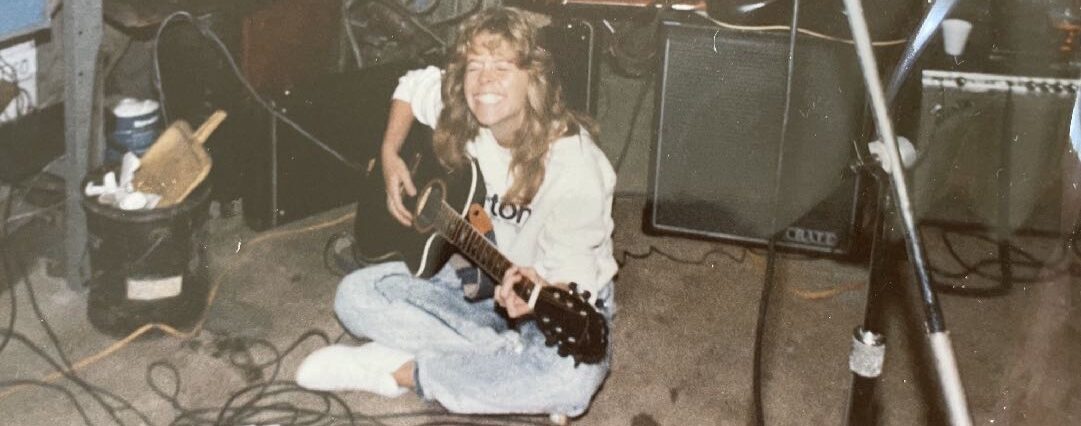I’ll Numb Myself Until It Hurts.
Being high didn’t make me any happier at home. While Larry slept, my nights alone were long and lonely. I just wanted someone to understand me, to sing along to the music I was playing, to dance with me when I felt like dancing, to cry with me when I felt like crying, and to read the poems that I scrawled all over anything that would accept my pen.
I was aching with self-pity, sure that there was some brilliant guy out there somewhere who would love me for who I really was. I knew Larry wasn’t the one. I had no idea that the person I was searching for was me.
So when the bars closed and I had to go home, wasted and longing to be loved, all I knew how to do was write about my feelings.
My poetry – which was, I’m sure, some of the worst ever written – came from the depths of my soul, pouring through the layers of drunkenness, crawling out of my demented brain and onto whatever was in front of me: an old magazine, a cigarette carton, a pile of coupons.
Here is a sample of my heartfelt work:
It pains my body but numbs my head
Sometimes I think I’d be better off dead
‘Cause the wounds won’t heal;
they only fade
Into a quiet sparking rage
And my anger burns the way alcohol does —
A screaming, hateful, firey buzz —
So I’ll numb myself until it hurts
And hope that the pain will die first.
All of my poetry was carefully signed or initialed – for copyright reasons.
Most nights, I read the poetry out loud to myself – sometimes into the microphone which stood in the middle of our living room, attached to a small amp that announced to the entire neighborhood that I was still awake. Sometimes I hooked up my guitar and strummed away, making up lyrics to songs I would never remember in the morning.
And I drank and drank … whatever was in the fridge … until it was completely gone.
Almost every night, I somehow escaped unscathed – no police knocking at my door, no neighbors banging on the walls, no one complaining about whatever I was doing from the hours of 2 a.m. until sunrise.
But one night, I believed I had written a particularly good and meaningful poem. It was deep. It was profound.
My poem was so significant, in fact, that it required an actual audience. I needed to read this poem to Larry.
I reread it carefully, making sure it was perfect. Then I picked up the ash-covered pad of paper, leaving the pen on the table.
I trotted into the bedroom and gleefully leapt onto the bed where Larry was sleeping.
“Hey look what I …!” I started.
But I never finished that thought; I was no longer able to speak.
